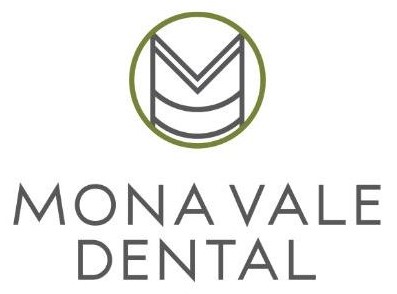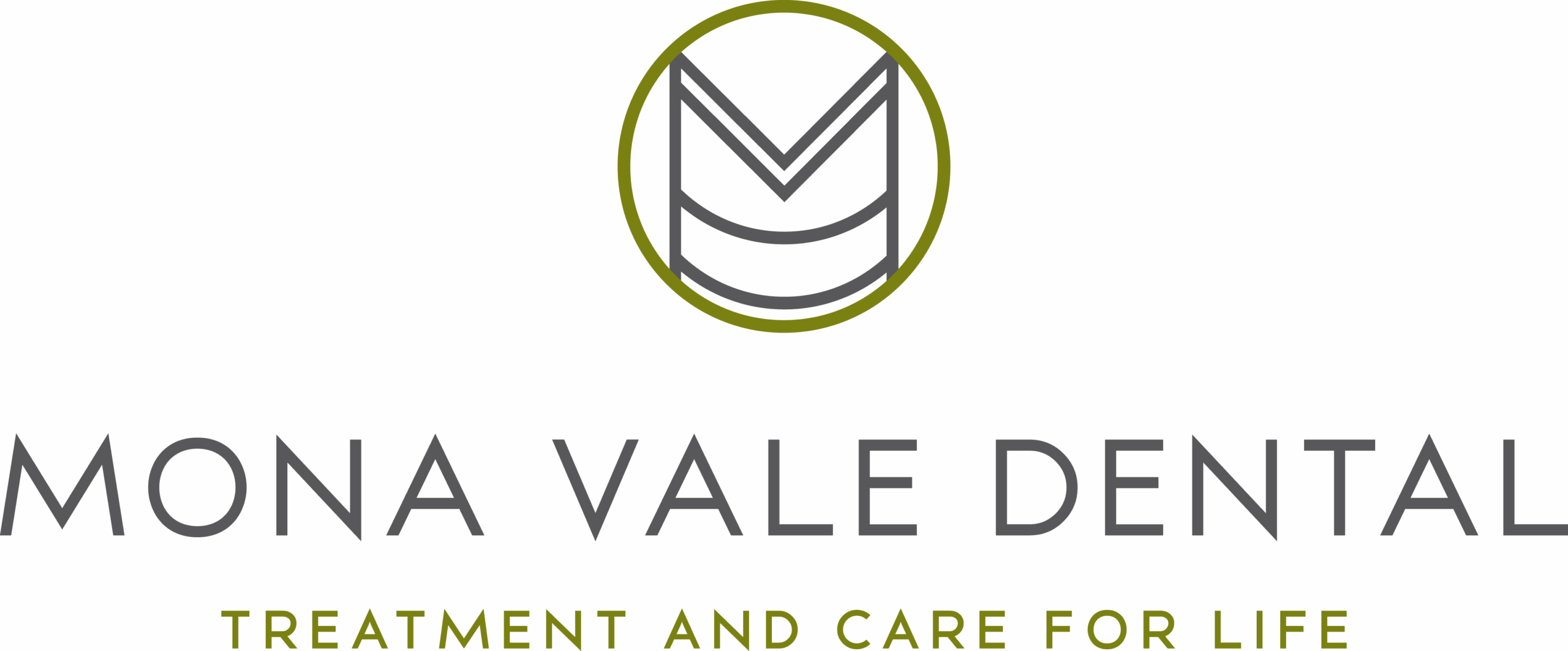Many might think dentistry starts when you walk into the clinic. But it begins with practices at home to help keep your kid’s teeth and gums healthy.
Every day, choices can affect your child’s smile: what toothbrush you buy, how long they brush, and even whether you rinse afterwards. These small decisions add up to big differences in oral health.
Taking simple yet effective steps for optimal oral hygiene works when parents, children, and dental professionals all collaborate. The goal isn’t just avoiding cavities; it’s building lifelong habits that protect your child’s teeth and confidence.
What Is Preventive Dentistry?
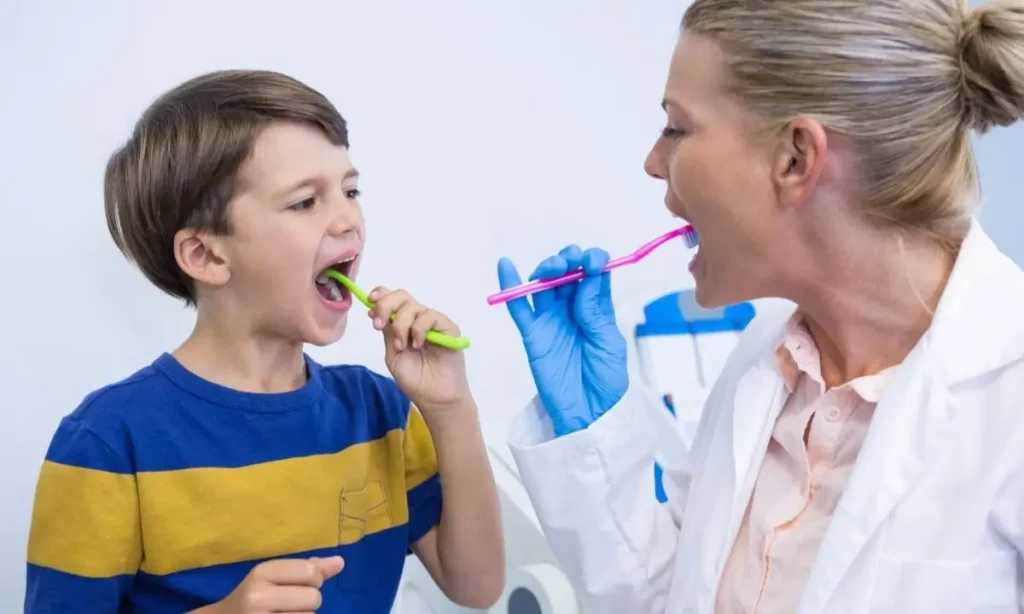
Preventive dentistry involves healthy oral care steps and exercises that help you avoid or minimise tooth troubles. Dentists and oral health therapists can give you useful, tailored tips to use at home that support any professional dental care done at a practice.
At check-ups for kids, dentists and oral hygienists:
- Do gentle checks and cleanings
- Show you and your kid how to brush and floss
- Give advice that fits your child’s unique needs
- Make dental visits feel less intimidating
Creating a secure, comfortable environment at the dentist helps encourage kids to stick to their oral care routine.
Why Brushing Baby Teeth Matters
While baby teeth fall out, taking care of and preserving them is still important. Milk teeth help your child talk properly and chew food. They also hold space so adult teeth can grow straight. When baby teeth rot or tooth decay begins, it can be painful. Sometimes, kids need fillings and teeth pulled out.
Starting brushing habits early sets your child up for success. Early, proper oral care helps avoid common dental issues like rotting and decay, as well as larger problems later in life.
Brushing Milestones by Age: A Parent-Friendly Guide
- Birth to First Tooth: Use a clean, wet cloth to wipe baby’s gums after feeds.
- First Tooth to Age 2: Time for a proper toothbrush! Use a soft-bristled infant toothbrush and a smear of fluoride toothpaste the size of a grain of rice.
- Ages 2 to 3: When teeth start touching, introduce floss. Your dentist can show you and your child the easiest way to do this.
- Ages 4 to 6: Slowly let your kids brush their teeth on their own, but be there to guide and correct if they don’t quite have the hang of it.
- Ages 7 to 8: Most children can handle brushing alone at this stage, but it’s still worth checking their technique now and then.
Tips for Cleaning Milk Teeth Effectively
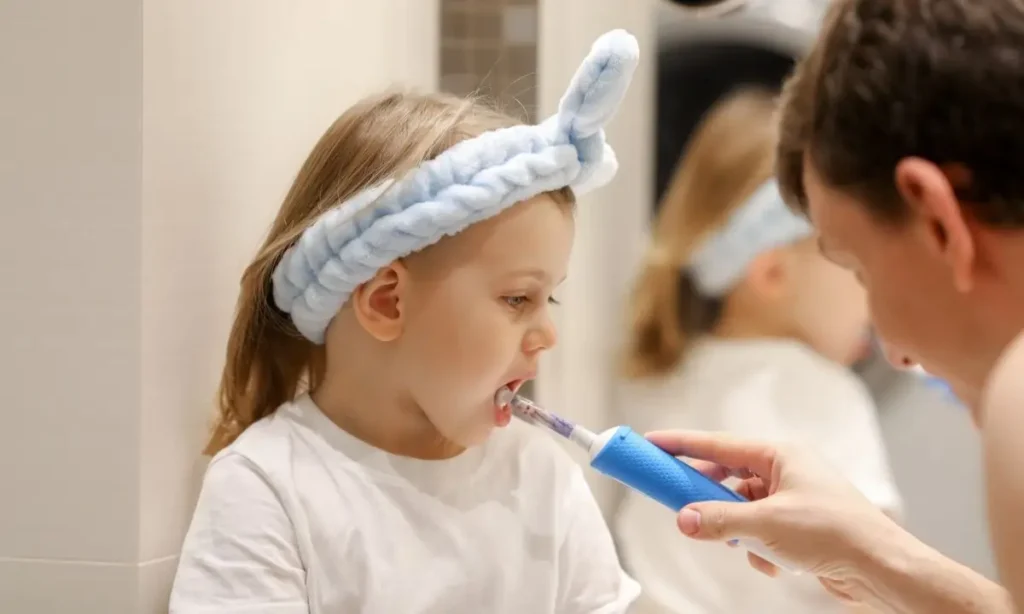
While the way you brush is important, having the right tools and tips goes a long way in building your kid’s oral care habits. Make sure your child:
- Has a Proper Toothbrush: Since the teeth and mouth are smaller, your child should use size-appropriate brushes that have soft bristles.
- Uses the Right Amount of Toothpaste: More isn’t better. A rice-sized bit until age 3, then a pea-sized amount from 3 to 6 years old.
- Doesn’t Rinse After Brushing: It’s best not to gargle water after brushing. This leaves protective fluoride on the teeth.
- Brushes for the Correct Duration: Put on their favourite song or a short video for two minutes. This can make teeth brushing time more fun for your child.
- Keeps the Whole Mouth Clean: The back teeth and tongue need cleaning too. Help them properly clean these areas to avoid a buildup of germs.
Choosing Suitable Dental Products
- Bristle Types: Small heads with soft bristles prevent harming your kid’s tender gums while still keeping them clean
- Kind of Toothbrush: Manual brushes are suitable for children under 3 while they are learning. Electric ones can be great for older kids, who often find them more exciting, and can be more effective at cleaning.
- Toothpaste: Use toothpaste with 1000ppm fluoride for children under 3, and 1350 to 1500ppm for ages 3 to 6. Check the tube to determine fluoride content.
- Dental Floss and Picks: Picks are ideal for beginners before progressing to floss. It’s recommended you try different types to see what clicks for your child.
Tip: Try to get a new toothbrush every 3 months.
Common Dental Mistakes and What to Do Instead
It’s natural to have a few poor techniques or misconceptions around teeth cleaning, especially for kids. Here are a few mistakes and how you can correct them:
| Mistakes | Fixes |
| Rinsing straight after brushing | Encouraging kids to spit the foam out |
| Using adult toothbrushes with hard bristles | Using child-sized soft brushes |
| Brushing in 30 seconds | Watching until they habitually stick to 2 minutes |
| Thinking 4-year-olds can brush without supervision | Guiding your kid until they’re at least 7 or 8 years old |
| Ignoring floss once teeth start touching | Starting early, even if it’s awkward, so your kid can learn |
Support Children’s Smiles With the Right Dentist
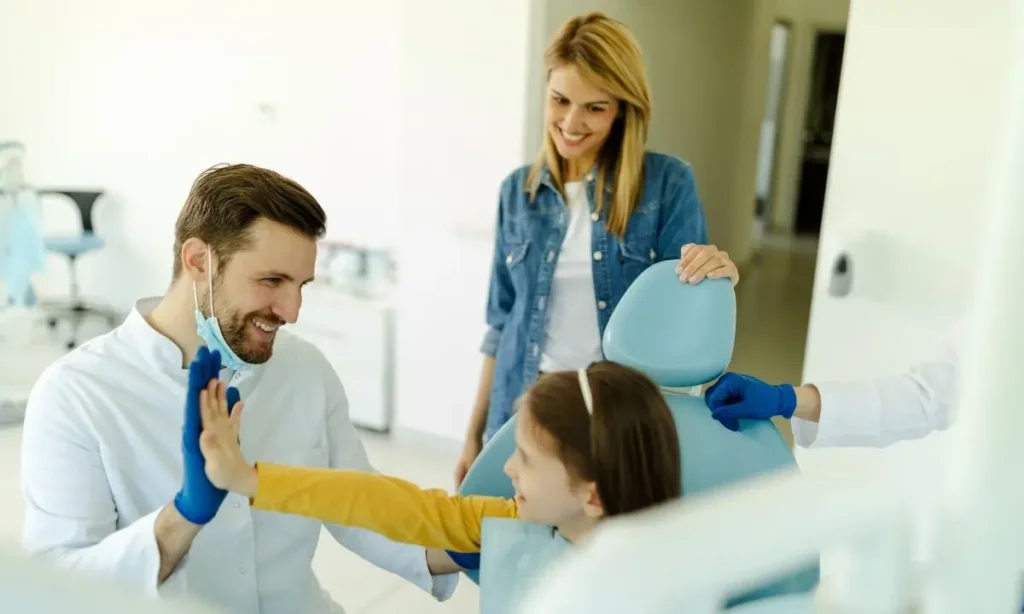
A child’s first dental visit should happen by age 1, or when that first tooth grows. Early visits help kids get used to the whole experience.
Here’s what to expect at kids’ dentist appointments:
- Quick look around to check everything’s developing well
- Gentle clean if needed
- Chat about what you’re doing at home
Going twice a year means catching small problems before they become big, expensive ones. Children’s dentistry at leading practices offers practical advice and gentle support to help each kid in the early years of their dental care journey.
Handling Dental Anxiety in Kids
Many children worry about dental visits. Understandably, they can be nervous patients, since the sounds and procedures might bring slight discomfort or fear.
Dentists and parents are aware of these nerves and help ease them by:
- Don’t use ‘brave’ when discussing dental visits, or tell them they have been ‘brave’ afterwards. This reinforces the idea that dental visits are normally scary.
- Explaining what happens in simple terms beforehand
- Using cheerful words when talking about dentists
- Finding books or videos about dental visits
- Praising them afterwards to reassure them
How to Make Good Dental Habits Stick
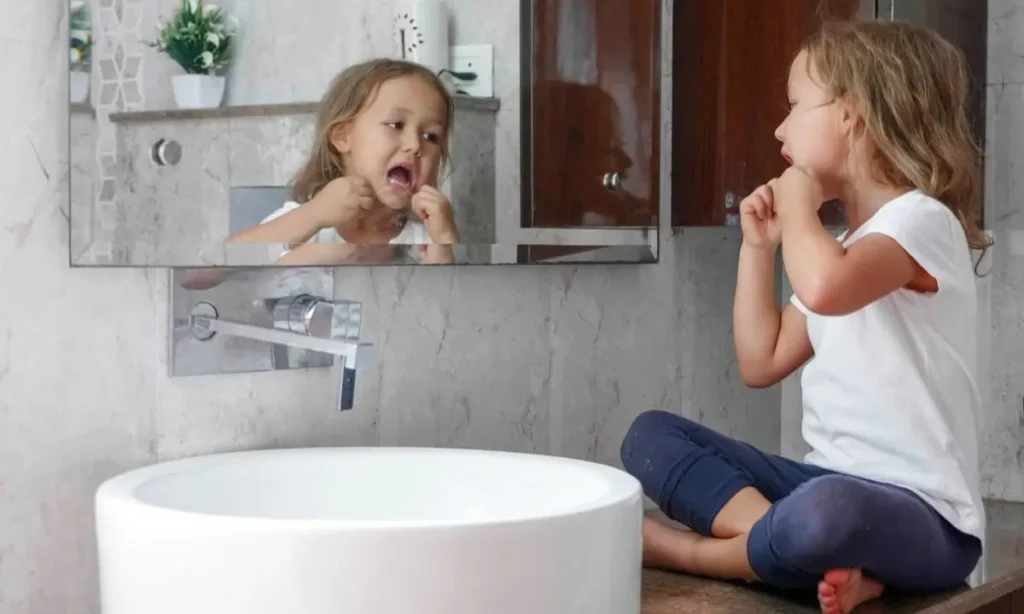
Building good tooth care habits takes time. As you guide your child through the years, focus on the basics: proper brushing for their age, right tools, helping when needed, starting flossing early, and regular dentist visits.
Keeping dental hygiene and dentist visits a positive experience through compassion and patience provides a steady foundation for lasting habits. With the right approach, you can help encourage preventive practices to keep your child’s teeth healthy.
Contact our leading experts in children’s dentistry by calling Mona Vale Dental at (02) 9997 1100 or filling in our online booking form; let’s start the journey to proper oral health.
